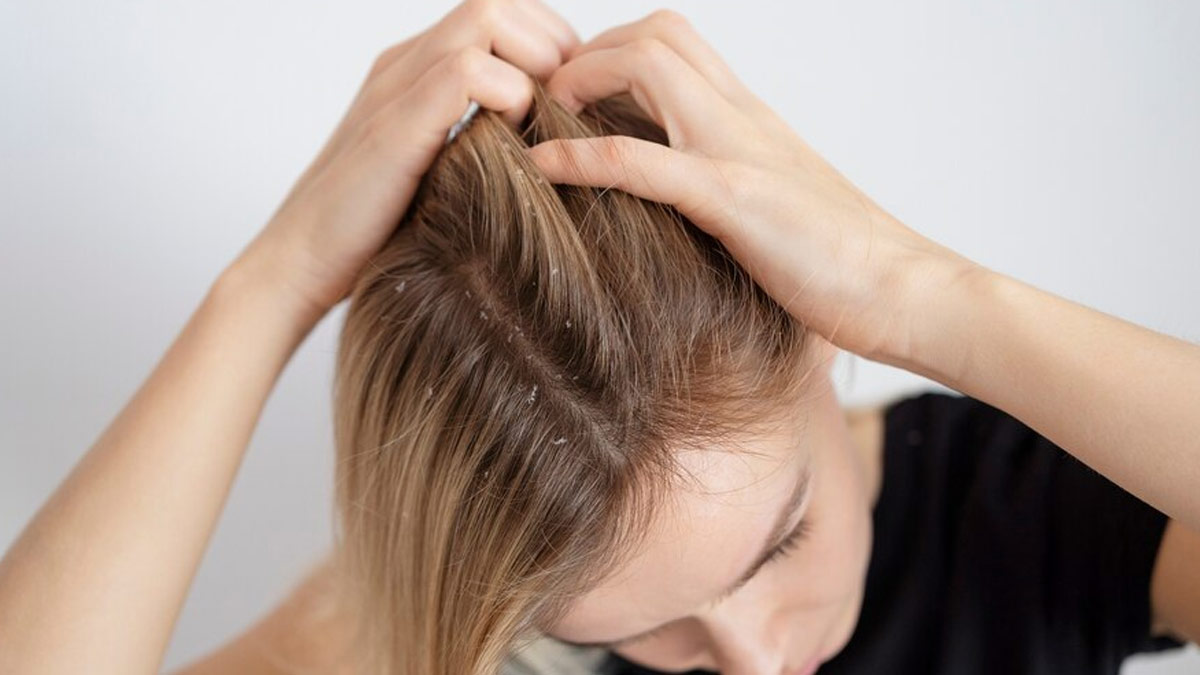
Have you ever dealt with an itchy scalp during the monsoon season? The mix of humidity, rainwater, and sweat can lead to various scalp problems. If you're searching for ways to address this issue, you're in the right place. In this article, we list the causes of itchy scalp during monsoon and home remedies to get rid of it.
Table of Content:-
Causes of Itchy Scalp During Monsoon
According to a 2017 study, scalp itch is a common complaint in dermatology. It is defined as an uncomfortable tingling or uneasy sensation that triggers the urge to scratch.
Excessive Humidity
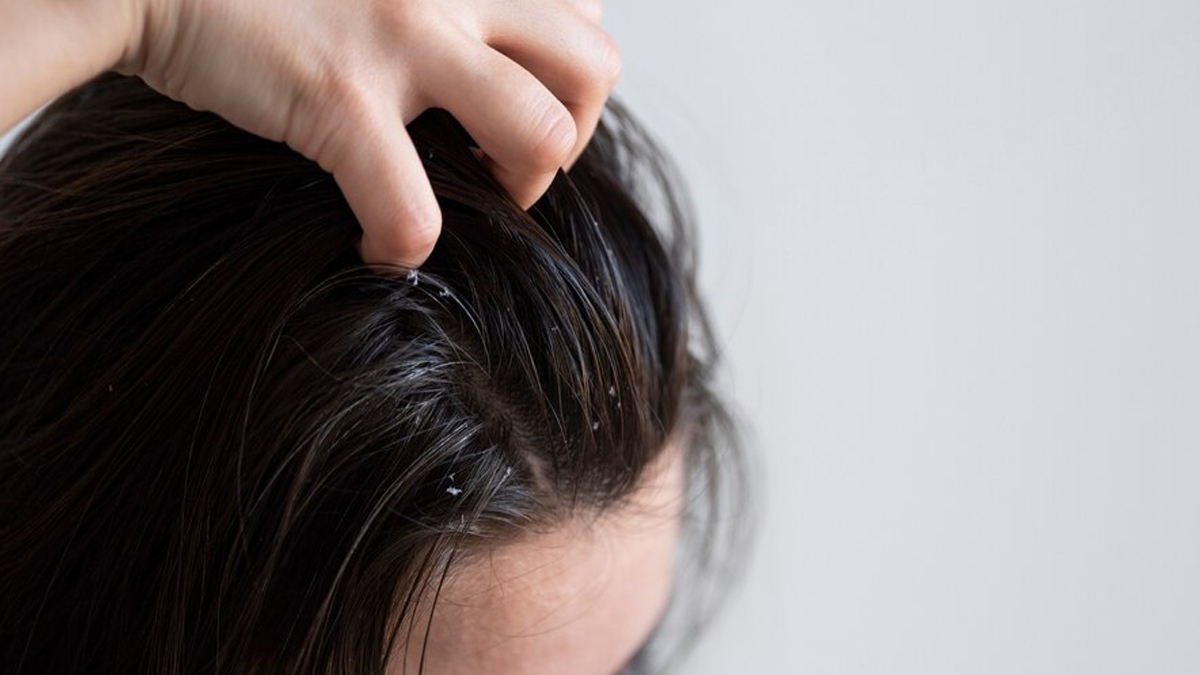
Monsoon weather is characterised by high humidity levels. This excessive moisture in the air can lead to an increase in sweat and oil production on the scalp. The accumulation of sweat and oil can clog hair follicles, leading to itching and irritation.
Fungal Infections
Another reason for an itchy scalp during monsoon is due to fungal infections, which are ideal in damp and humid conditions. This fungus thrives on the scalp and can cause dandruff, which leads to itchiness and flakiness.
Also Read: Dealing With A Sweaty Scalp? Here's What Causes It And Ways To Manage It
Rainwater
Did you know rainwater is often polluted and can contain various contaminants? When this water comes into contact with your scalp, it can cause irritation and itching. Also, rainwater can strip your scalp of its natural oils, leading to dryness and itchiness.
Scalp Buildup
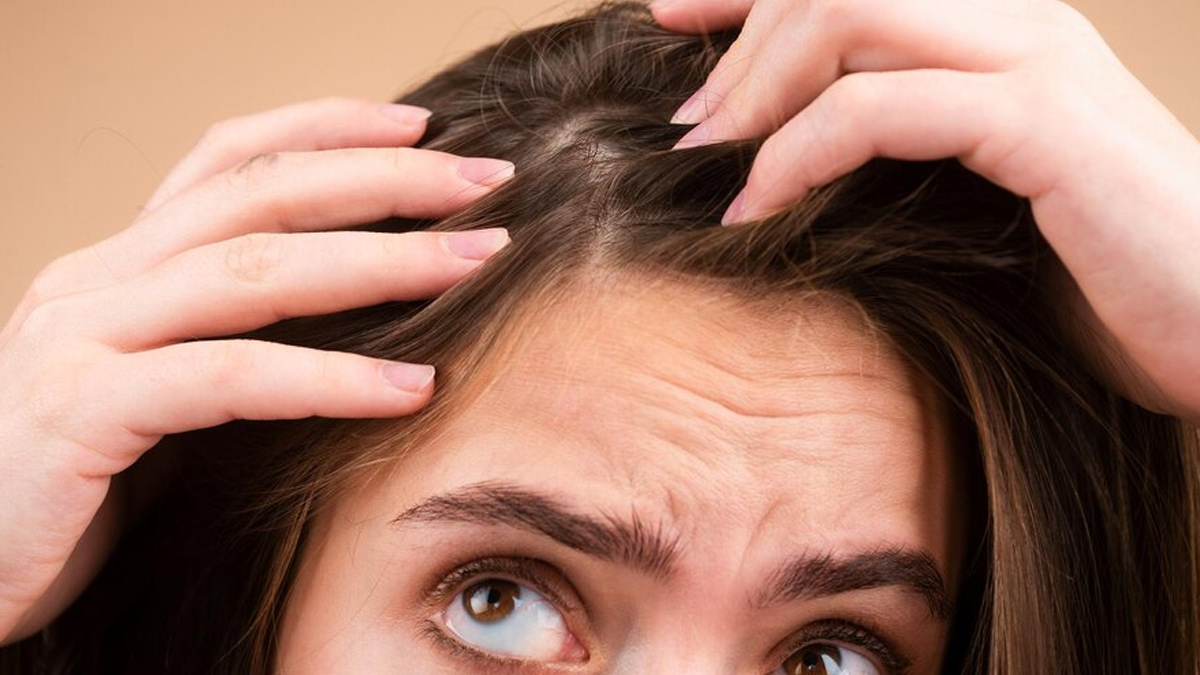
Not only this, even hair products, such as gels, sprays, and serums can contribute to product buildup on the scalp. During the monsoon, when washing hair becomes more challenging, this buildup can worsen, leading to an itchy and irritated scalp.
Allergic Reactions
Humidity can enhance the effects of allergens. If you are allergic to certain hair products or environmental factors, the monsoon can exacerbate these reactions, causing your scalp to itch.
Poor Hygiene
During the monsoon, people often avoid washing their hair frequently due to the risk of catching a cold or due to the inconvenience of drying it. This can lead to poor scalp hygiene, which in turn can cause itching.
Home Remedies to Manage Itchy Scalp
Keep Your Scalp Clean
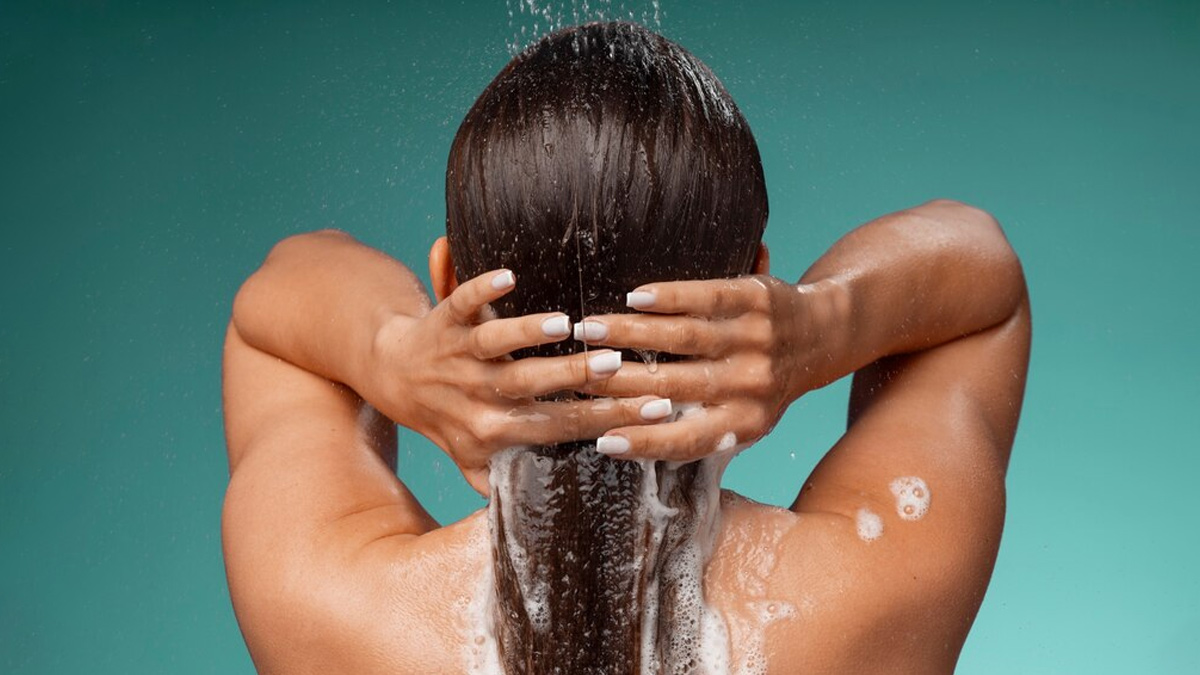
To get rid of scalp itchiness, start by maintaining good scalp hygiene during the monsoon. You should wash your hair regularly with a mild shampoo to remove sweat, oil, and dirt. Opt for anti-dandruff shampoos containing ingredients like ketoconazole or zinc pyrithione if you are prone to dandruff.
Avoid Getting Wet in the Rain
You should avoid getting your hair wet in the rain as it can introduce pollutants and irritants to your scalp. If you do get wet, make sure to wash your hair thoroughly as soon as possible.
Use Natural Remedies
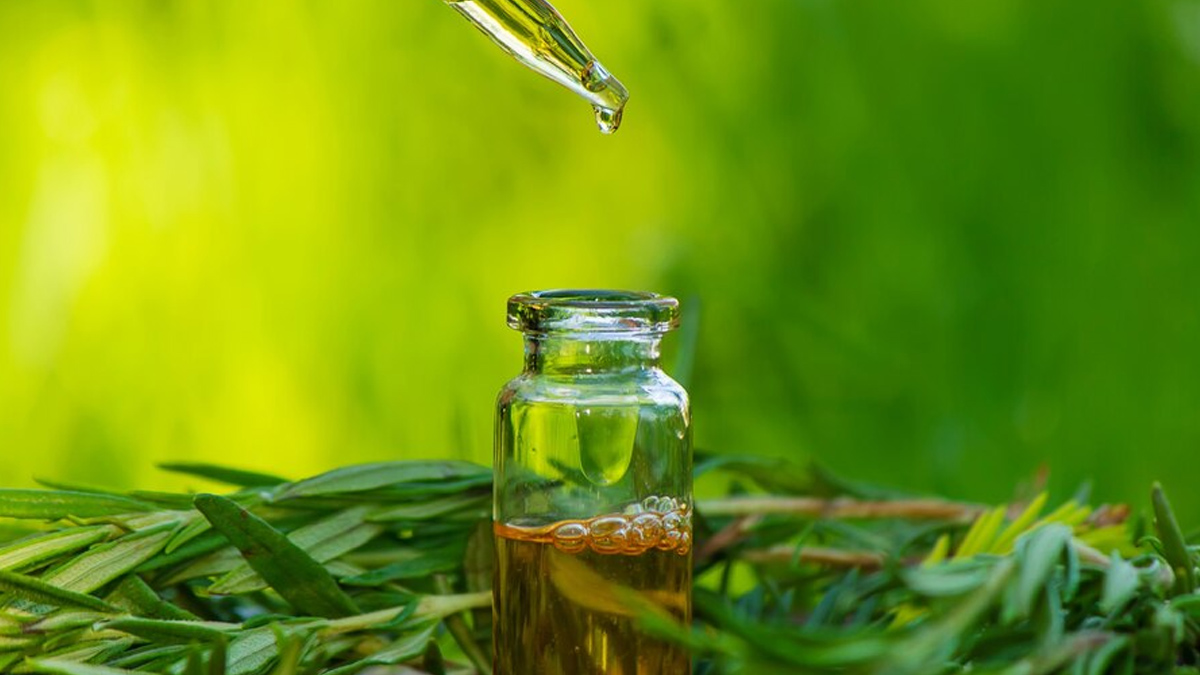
Several natural remedies can help soothe an itchy scalp. Ingredients like tea tree oil, neem, and aloe vera have antifungal and antibacterial properties. You can mix a few drops of tea tree oil with a carrier oil and massage it into your scalp, or use aloe vera gel directly on your scalp for relief.
Also Read: Dry Scalp Vs Dandruff: Experts Explains How To Differentiate Between The Two
Stay Hydrated
It is important to drink plenty of water to maintain your overall health, including your scalp. Staying hydrated can help balance oil production and prevent dryness and itchiness.
Use a Light Conditioner
While it’s important to keep your scalp clean, you should also ensure it remains moisturised. Use a light, non-greasy conditioner to keep your scalp hydrated without weighing down your hair.
Avoid Heavy Hair Products
During the monsoon, it’s best to avoid heavy hair products that can lead to buildup. Stick to lightweight products and avoid overusing hair sprays, gels, and serums.
Maintain a Healthy Diet
Healthy hair and scalp require a balanced diet rich in vitamins and minerals. Include foods high in omega-3 fatty acids, zinc, and vitamins A, C, and E in your diet to support scalp health.
Wear a Cap or Scarf
Don't forget to protect your hair from rainwater and humidity by wearing a cap or scarf when you go out. This can help minimise exposure to pollutants and prevent your hair from getting wet.
[Disclaimer: This article contains information for informational purposes only, hence, we advise you to consult your own professional if you are dealing with any hair issues to avoid complications.]
Also watch this video
How we keep this article up to date:
We work with experts and keep a close eye on the latest in health and wellness. Whenever there is a new research or helpful information, we update our articles with accurate and useful advice.
Current Version